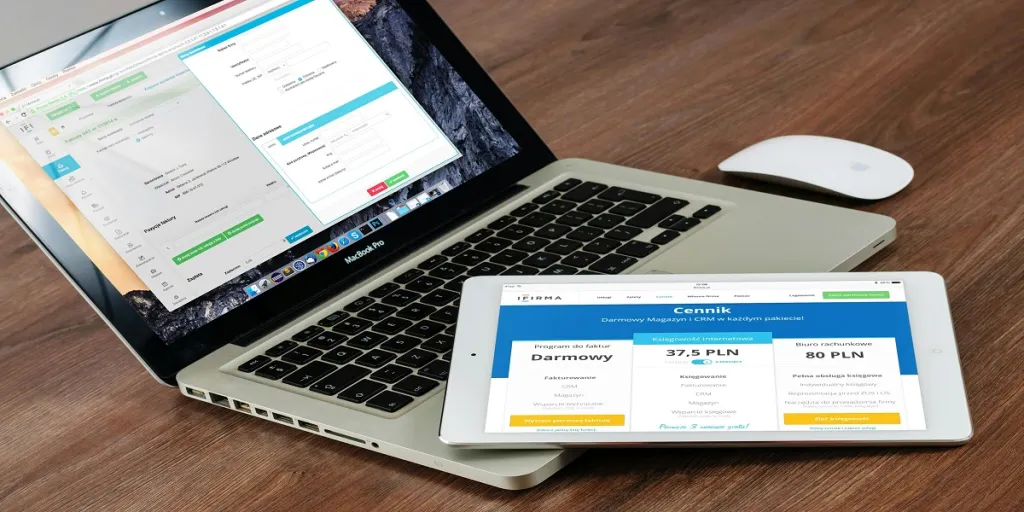As a marketer, you’re well aware that email is a crucial part of your strategy, with 99% of email users checking their inbox daily. However, the challenge lies in making your emails captivating and engaging to your subscribers.
This is where understanding email engagement becomes vital, as it can help you tackle the problem of declining open and click rates. But fear not, because in this guide, we will delve into practical email marketing strategies that you can implement to boost engagement from your campaigns today.
Let’s get started.
Table of Contents
What is email engagement?
Email engagement metrics to track
Email marketing hacks to engage your subscribers
Conclusion
What is email engagement?

Email engagement is the rate at which email recipients interact with your emails, whether by opening them, clicking links in them, or sharing them with others. You can measure engagement using metrics or key performance indicators, such as the email open rate, click-through rate, and subscribe rate.
Understanding and tracking your email engagement is important. It allows you to gain a comprehensive understanding of how your email contacts react to your emails, the topics that interest them, and which campaigns have better results. This knowledge equips you to create emails that truly resonate with your audience and drive your sales.
Engagements differ depending on the target group and industries, so it is vital to track how your email campaigns are performing against your previous ones, general email, and industry standards, as well as the types of email you are analyzing. This will enable you to identify areas with issues and develop relevant strategies to address and improve them.
Email engagement metrics to track
You need to analyze different email marketing metrics to get an overview of what happens once your subscribers receive an email besides opening it. The key email KPIs to track are as follows.
1. Open rate
The email open rate is an indicator that tells you the number of subscribers as a percentage that opened the email upon receiving it. Open rates generally reveal how enticing your email subject lines are and how people think about your company. Therefore, if people find your brand influential, they will likely engage with your communications.
2. Click-through rate
Once people have opened your message, the click-through rate reveals how they will react afterward. Also called CTR, this metric reveals the percentage of contacts that have clicked on a link in the email. It shows you that your emails are capable of inspiring action, such as clicking a button that directs them to a landing page or signing up for a waiting list.
3. Conversion rate

This is one of the most important metrics that marketers should keep an eye on. The conversion rate represents the percentage of contacts that completed a desired action after clicking a button or link in the email. Keeping track of this indicator helps you know whether your strategy was effective in generating leads or sales.
4. Subscribe rate
The subscribe rate is an email marketing metric that identifies the percentage of recipients that join your mailing list. Tracking your subscribe rate tells you whether email list growth tactics are effective and how people think about your brand.
5. Unsubscribe rate
This is a metric that shows the percentage of users who opt out of your email list. You should track your unsubscribe rate because a high rate or a rise in the number of unsubscribes notifies you that there are issues with your email that need a fix.
6. Email bounce rate
At times, emails may fail to reach their desired recipients. The metric that tracks this rate is the bounce rate. They can occur in two main ways: soft and hard bounce rates.
A soft bounce happens when emails fail to reach a user because of technical issues. A hard bounce rate occurs when an email cannot reach the recipient due to their email address being invalid or non-existent.
7. Spam rate
Email deliverability is vital in email marketing. The spam rate looks out for the email percentage of those that ended up in a user’s spam folder. This metric is affected by your sender reputation and your email marketing tool’s deliverability rate.
In the case where you have high spam rates, your emails may fail to reach the intended audience, therefore resulting into low engagement rates. To combat this issue, assess your emails and make sure that the elements you use meet ISP standards.
Email marketing hacks to engage your subscribers
To craft engaging emails, you need a mix of creativity, data, and a desire to deliver relevant content that can address the specific pain points of your users. Start boosting your email subscriber engagement rate using these tips:
1. Use welcome emails

In addition to your usual marketing emails that target new customers, incorporating welcome emails can ignite engagement. Welcome emails introduce your brand to a user, which presents an opportunity to create a good first impression on your potential customers.
Use welcome emails to tell users what to expect, showcase your brand identity, and discuss the key features of your products and services. The good thing about welcome emails is that they are highly effective. They have higher open rates, at 86%, and can lift clicks by 196% compared to any other marketing email.
2. Write enticing subject lines

Subject lines are among the most important email elements, and they can either make or break your strategy. They are what recipients see in their inboxes before opening the email message. So, if you want to engage contacts in your email list, you need to get your subject game right.
Start by making your subject lines short using fewer characters. According to research by Omeda, a subject line with 20 characters or shorter can generate more clicks. Another research by Brian Dean, Backlinko founder, revealed that subject lines that do not exceed 16 characters have higher open rates.
Second, personalize the subject line by using the recipient’s first name. This is because personalized promotional emails have 29% higher open rates and 41% more clickthrough rates.
Lastly, use the FOMO strategy to create a sense of urgency in your emails. This can spark subscriber engagement because 60% of purchasers make impulse purchasing decisions based on their fear of missing out.
When crafting subject lines, some best practices include avoiding the use of caps lock, exclamation marks, and spam trigger words such as free gift, 100% genuine, or affordable. Your emails will end up in the user’s spam folder.
3. Make your CTAs stand out

Similar to the subject line, the call-to-action is vital to all types of content marketing. Its primary objective is to prompt your users to take a specific action, such as downloading an e-book, subscribing to your newsletter, or purchasing a product.
One of the many things that you can do to improve the look of all of your emails is to make your call to action as prominent as possible. Some CTA tips include:
- Using actionable verbs – These include “Download Now,” “Sign Up,” or “Get Started,” which encourage action.
- Place CTA above the fold – This will increase the visibility of your CTA. Research shows that CTAs placed above the fold are 73% more noticeable as compared to below the fold with a 44% viewability rate.
- Incorporating contrasting colors – Colors that pop are impossible to ignore. Some contrasting color ideas for your call-to-action button include black over white or yellow over purple background.
4. Use your natural language
Writing your emails using informal language or how you speak is a good email engagement strategy. This is because most people don’t like reading emails that communicate with them in an official or corporate tone.
A conversational tone is highly recommended. According to experts, an email that feels conversational is likely to ignite interaction and even boost sales.
5. Try storytelling in your emails

Storytelling is an effective marketing technique that can cut through the noise and capture a reader’s attention. This can make your readers want to open your emails and continue reading.
To use storytelling in email, figure out what makes your brand unique or why your products differ from your competitors, and then think about the emotions you want to drive.
Once these things are figured out, use storytelling techniques such as analogies, anecdotes, and customer success stories to wow your readers.
Remember that your story should be authentic and creative and doesn’t directly sell a product because people can sense advertising immediately and close your email. In addition, show people how your brand makes their lives better. This leads to an enhanced customer experience that sparks engagement.
6. Use interactive elements
Make your emails lively by adding elements such as quizzes, polls, and visuals like GIFs, emojis, images, and videos that can raise interaction. Incorporating these elements can transform a passive reader into an engaged subscriber, making them want to read the entire message.
In fact, a Litmus 2020 report revealed that 91% of consumers seek interactive content, yet 17% of marketers deliver it. This means that the more interactive your email content is, the more likely people are to scroll, play, tap, and click on the most important email marketing elements.
7. Create mobile-friendly emails

Out of 2.6 billion users, 1.7 billion check their emails on smartphones. Therefore, if your emails are not mobile-friendly, you are missing out on potential engagement and sales.
To make your emails responsive on mobile, make sure they have fewer CTA buttons (at least one) and have a single layout design.
Other tips include incorporating mobile-optimized images, videos, and graphics and fixing the aspect ratios. This ensures that your emails are aesthetically pleasing on any device and do not display content outside the visible area.
Conclusion
Measuring email engagement is crucial for marketers because you can know the effectiveness of your marketing strategy and the areas that need improvement. Email metrics like open rate, CTR, and conversion rate can help you with crucial data and a clear picture of what should be done to finetune your campaign strategy. With the tips in this guide, boosting your email subscriber engagement rate should not be a problem.
Want to gain more marketing insights like this? Find a wide range of ecommerce articles covering the latest industry trends from Chovm.com Reads today.





 Afrikaans
Afrikaans አማርኛ
አማርኛ العربية
العربية বাংলা
বাংলা Nederlands
Nederlands English
English Français
Français Deutsch
Deutsch हिन्दी
हिन्दी Bahasa Indonesia
Bahasa Indonesia Italiano
Italiano 日本語
日本語 한국어
한국어 Bahasa Melayu
Bahasa Melayu മലയാളം
മലയാളം پښتو
پښتو فارسی
فارسی Polski
Polski Português
Português Русский
Русский Español
Español Kiswahili
Kiswahili ไทย
ไทย Türkçe
Türkçe اردو
اردو Tiếng Việt
Tiếng Việt isiXhosa
isiXhosa Zulu
Zulu